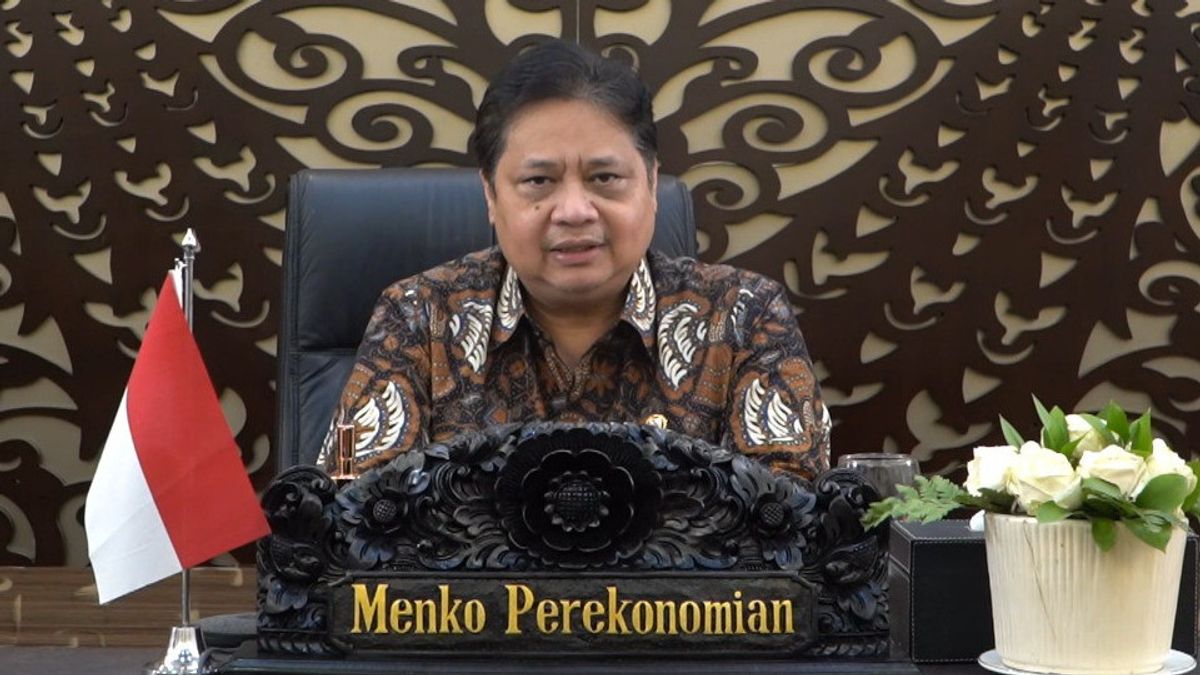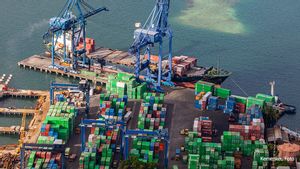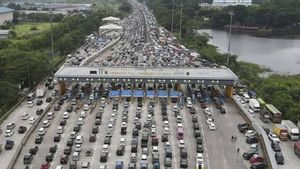JAKARTA - Coordinating Minister for Economic Affairs Airlangga Hartarto believes that the adoption of technology and its use is the main key in creating efficiency in various aspects of people's lives, socio-cultural and economic. Increased cooperation between the Government and stake holders is expected to be able to multiply economic progress.
According to Airlangga, in this case, Grab's involvement in the development of digital technology and talent is also a form of support and an important role for the development of the digital economy in Indonesia.
This was believed by Airlangga when he gave a virtual keynote speech, Friday, November 19, at the research launch event entitled "The Impact of Grab on the Economy and Socio-Cultural Affairs in Kupang and Jayapura"
"Airlangga said that the launch of this research is proof that cross-stakeholder synergy can encourage the presence of various innovative and inspiring researches in the current era of technological disruption." said Airlangga Hartarto during his keynote speech at the launch of a research event entitled "The Impact of Grab on the Economy and Social Culture in Kupang and Jayapura" online recently.
The event was held as a result of the collaboration of PT Grab Teknologi Indonesia (Grab Indonesia) and the Institute for Economic and Community Research, Faculty of Economics and Business, University of Indonesia (LPEM FEB UI).
Airlangga explained, the increased adoption of digital technology, triggered by the shifting trend of people's behavior and changes in business models, is predicted to be able to increase the value of Indonesia's digital economy in 2021 to reach USD 70 billion or grow 49% (yoy), from last year's value of USD 47 billion. .
One sector of the digital economy that is growing rapidly and is very dynamic is Transportation and Food Delivery Services (ride hailing). Ride-hailing is an enabler of digital economic activity, and during the pandemic it is a helper by providing a variety of services for the community and providing solutions for job creation, increasing financial inclusion, and supporting increased economic activity.
Throughout 2020 until the first half of 2021, in Indonesia there are around 21 million new digital consumers. Of these, 72% are from non-metropolitan areas. This means that in tier 2 and 3 areas, digital penetration continues to grow and even continues in the midst of a pandemic.
"I hope that Grab can continue to take on its role by presenting various solutions in supporting the development of the digital economy, especially in eastern Indonesia, including encouraging the increasing contribution of MSME players in the digital economy, improving digital skills and literacy, facilitating digital services, and increasing the participation of entrepreneurs. business in the informal sector," hoped Coordinating Minister Airlangga.
Along with the development of digital technology, a number of risks and challenges arise, such as the provision of physical and digital infrastructure. Therefore, the Government and relevant stakeholders continue to strive to develop the provision of digital facilities and infrastructure that can reach all communities, especially those in the 3T (Front, Outermost, and Disadvantaged) areas.
"We really appreciate Grab's efforts to participate in accelerating the development of the digital economy to Eastern Indonesia. The inclusiveness of the digital economy is an important part in welcoming the future of the national economy in the midst of this pandemic situation," concluded Coordinating Minister Airlangga.
The English, Chinese, Japanese, Arabic, and French versions are automatically generated by the AI. So there may still be inaccuracies in translating, please always see Indonesian as our main language. (system supported by DigitalSiber.id)













